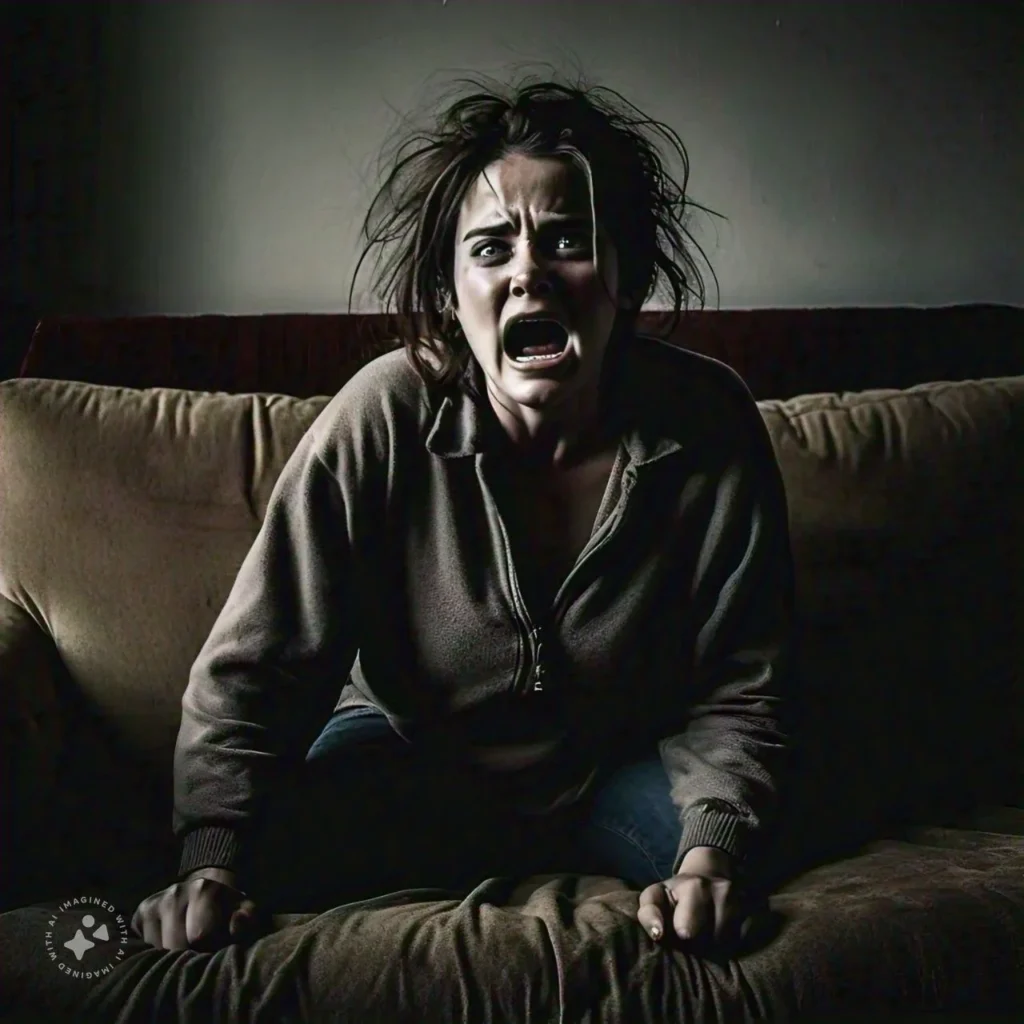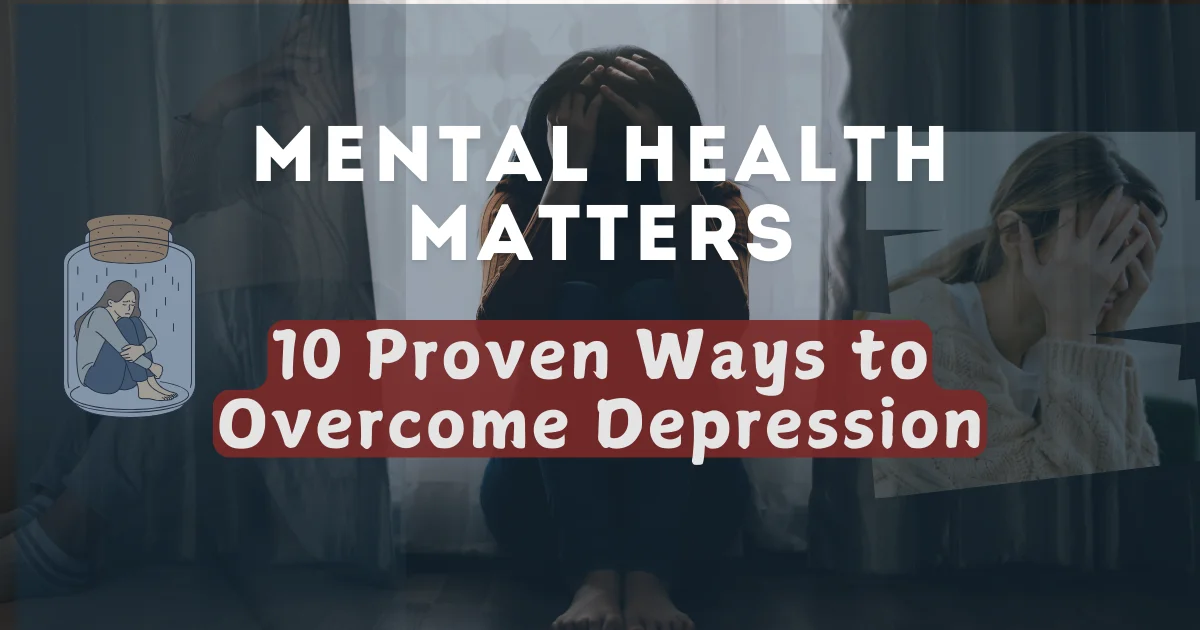This blog will shed some light on mental health disorders that are not widely spoken about in the Asian Subcontinent because of cultural reasons – believing that it will bring on shame and stigma to the family, blaming everything on the excessive use of mobile phones, not praying, witchcraft, and black magic. But the main reasons are; Lack of awareness.
What is depression? Let's find with Sphere Medium
Depression is the most common mental health disorder, affecting millions of people across the globe. Though treatment is time-consuming and trial-and-error-based, many people worldwide do recover from this ailment. Symptoms are extreme sadness, dreading the day ahead, not looking forward to the night, changes in sleeping patterns, changes in appetite, not wanting to see anyone, not wanting any contact with the outside world are just some of them.
When dealing with severe or protracted depression, it is absolutely crucial to seek medical advice, visit a professional, or speak to someone who may be able to help you further.
Helping yourself is the first step towards your road to recovery. Read on to find out how;

Top Ten Ways to Overcome Depression:

ACCEPTANCE!
Once you are past this stage, everything from here will become a lot easier. You must then book yourself in with a mental health expert like a therapist or a psychiatrist who can then guide you and work towards small goals. CBT therapy assists also, by recognizing how unhelpful ways of thinking can be altered and also determining the level of depression. Medication is given according to the degree of depression and symptoms.

Stay Occupied
Keep yourself busy, at home or even better, at the gym – getting some exercise really helps elevate your mood and releases the feel-good neurotransmitters endorphins and serotonin. Aim for 4 days a week at the gym for at least 30 minutes a session.

No Negativity
A common symptom of depression is always thinking negatively or the worst. Thinking about the here and now only will make you a lot calmer and minimize such thoughts.
Practice meditation too. This works wonders.

A Schedule
Disorganization and tiredness are common symptoms of depression, which can make even the smallest of chores seem insurmountable.

Talk to someone
Challenging as it can be, seeking help from friends and family can bring emotional relief. A small message or a phone call is all it takes. Go do this! Keep in mind, no one will judge you.

Eat clean
A poor diet means lethargy, which further means feeling overwhelmed and again depressive. It’s a vicious cycle, so try to come out of it by sticking to a balanced diet. Salmon, leafy greens, and lots of omega-3 fatty acids help a lot.

Sleep Well
Sleep! This is so important. Not enough sleep or too much are signs of being depressed, so get yourself into a healthy sleeping routine.

Alcohol & Drug abuse
Please don’t bottle up and talk to someone. Drugs can cause dependence and other mental health problems, while alcohol is a depressant that can make sad feelings worse. When people cut back or quit using drugs, their bodies and brains are able to work better, and their moods are more stable.

Hobbies
When you’re depressed, getting back into hobbies can do wonders for your mood. Engaging in things that bring you joy, such as gardening, playing an instrument, writing, or painting, can help you feel accomplished and divert your attention from unpleasant thoughts. Remember, small steps are easier to take toward your goals.

Reward yourself
Split up your chores into smaller ones, these are easier to handle this way, and every time you complete one, you can reward yourself to keep yourself motivated.
Some of the most common types of depression include;
Major Depressive Disorder which consists of constant bouts of extreme sadness, and losing interest in daily chores in general, that affects every day functioning.
Persistent Depressive Disorder is another branch of depression that can last up to two years and isn’t as severe.
Bipolar Disorder on the other hand, can be quite severe if left untreated. Symptoms can include extreme mania, extreme moments of sadness. Major bouts of mood swings, always one extreme to another.
Is there any connection between Depression, psychosis, & schizophrenia?
A quick explanation below;
- Depression and Psychosis – Depression in rare cases can lead to psychosis, called psychotic depression, where patients can have suicidal thoughts, be delusional, and have visual and auditory hallucinations alongside extreme symptoms of depression.
- Depression and Schizophrenia are two entirely different mental health disorders. Schizophrenia symptoms can be very aggressive as compared to depression alone. i.e., a Schizophrenic will hallucinate, become delusional, have scattered thinking, and so on. While a person with schizophrenia can also suffer from depression (depression as schizoaffective disorder), untreated depression itself does not cause schizophrenia.
My thoughts
There is always a way to manage mental health disorders and make a full recovery. I personally have lived through this up close and personal.
My husband, who suffered from Psychosis a few years ago, had many relapses since that first episode, but with determination and great family support, we got through this, and he’s made a full recovery. Obviously, the medications are still ongoing. But we fought with this, and so can you.
If you know someone suffering from this silent killer, don’t let them suffer alone. Reach out!
I’ve not covered even an inkling of depression in this blog as this disorder is so vast, from one branch to another to another.
But if you have any questions regarding mental health, I’d love to help – just comment below or send me an email.
And finally –
Thank you for reading. To ensure authenticity and thoroughness, I used a range of sources when putting this blog together. Do leave feedback in the comments section below, and carry on reading here at Sphere Medium.
FAQs
Extreme sadness, not wanting to face the outside world, and inconsistent sleeping and eating patterns are some of the symptoms.
Long-term diseases, hormonal changes, and malfunctioning neurotransmitters are among several elements.
Depression sufferers can get better and, in some cases, totally recover with treatment and medicine.
Yes, it can run in families, though genetics is just one factor. There’s many more reasons why an individual can develop depression.
Bipolar is when an individual suffers from extreme mood swings, there’s really no in between. It’s from one mood to another. Mania – hypomania and then the lows – sadness and depression.

Writer | Scribbler of Dramatic Verses | Zoophilist | Empath |In the midst of writing my very first Novel | Mens Skincare Coming Soon | Husband’s Right Hand



